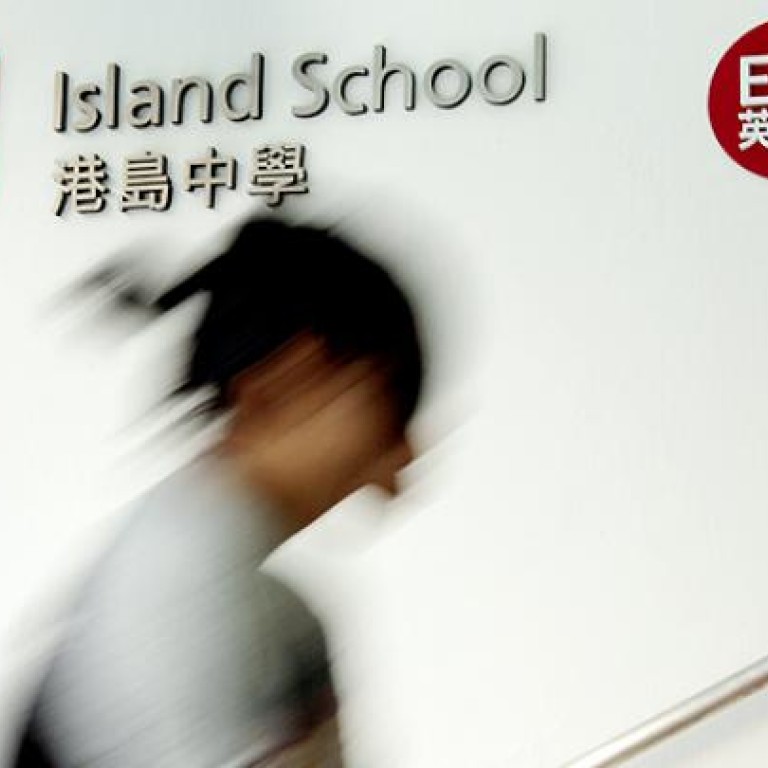
ESF to end admission priority for non-Chinese speakers
Foundation changes tack on admissions policy, with the move likely to increase the competition for primary places among expatriate children
The English Schools Foundation announced on Monday it will be ending its admissions priority for children who do not speak Chinese.
The move is likely to increase the competition for expatriate children seeking to enrol at its primary schools.
And it comes at a time when the ESF is seeking to secure official funding for its English-medium schools from a government increasingly inclined to view it as an outdated colonial institution.
Another change in admissions policy announced on Monday includes scrapping the priority for interviews for primary school places given to children who have attended ESF-affiliated kindergartens, from which around 600 children graduate every year.
The changes will begin taking effect from August, the ESF said. But the one most likely to alarm expatriate families is the ESF's decision to end the priority given to non-Chinese speakers for primary school places.
The policy was maintained previously on the assumption that Chinese speakers could go to Chinese-medium schools.
Such a change is likely to make it more difficult for non-Chinese speaking children to find a school place, because of the increased competition it will create for places at the ESF's English- medium primary schools.
ESF chief executive Heather Du Quesnay said that stringent interviews would be conducted for school applicants, which would include English proficiency tests.
She did not believe the new system would reduce the number of non-Chinese students at ESF schools.
And she insisted the changes had nothing to do with the foundation's on-going attempts to persuade the government to maintain, if not increase, the ESF's annual HK$283 million subvention, or subsidy.
She told a news conference the implementation of the policy to give priority to non-Chinese speakers had been unsuccessful.
She said: "It's pretty difficult to test if the child cannot speak Cantonese. We have never been able to do it. That's one of the reasons the system didn't work very well."
For years, children unfamiliar with Cantonese – mainly expatriates – were treated favourably when applying for a place at one of the ESF schools.
The schools were set up in the 1960s by the British colonial government to serve non-local families, many of them civil servants from Britain.
They [non-Chinese taxpayers] will just leave Hong Kong if they can't find a school place
Each year the ESF offers about 13,000 places and the competition for these has become keen in recent years.
Demand from both local families and expatriates has grown, particularly after the government switched the medium of instruction for most of its public schools to Chinese.
Last year, more than 2,400 applications were made for places at ESF primary year one admission, according to the ESF office, compared with 1,340 in 2007. Thousands are on the schools' waiting list.
Some expatriate parents said the new arrangement would make it harder for expatriate families whose children do not speak Chinese to find a school place.
The make-up of the ESF primary and secondary schools has changed greatly in recent years.
According to the ESF's annual report, 44 per cent of its students are now ethnic Chinese.
Amanda Chapman, head of the Native English-speaking Teachers' Association, said modifying the language criteria was unfair for non-Chinese-speaking taxpayers because these families were already finding it difficult to find school places.
"They will just leave Hong Kong if they can't find a school place," Chapman said.
Willy Ewal, an expatriate father, said he believed the ESF had the right to change its admission policy. "The government wants to make it private so [the ESF] has to behave like a private school. They need the money, so money will come first," Ewal said.
An Education Bureau spokeswoman said in response to the announcement that the ESF has autonomy in deciding on its curriculum, the student mix and admissions criteria.
"In the context of the ongoing subvention review, the services provided by the ESF should be underpinned by, amongst other things, relevant parameters in its admission policy as a condition for granting new subvention, if any," the spokeswoman said.
Du Quesnay said she did not face pressure from the government over the admissions policy changes. She said fees for the next school year would be announced next month.
And she said the ESF was also considering a new "nomination rights" scheme for companies. Purchasing the rights would give them advantages in the admissions process.
Legislator Ip Kin-yuen, who represents the education sector, said any arrangements should not be at the expense of the educational needs of children.
He added that the availability of quality school places, along with air quality and high rents, was an area of concern for sustainable development in the city.
